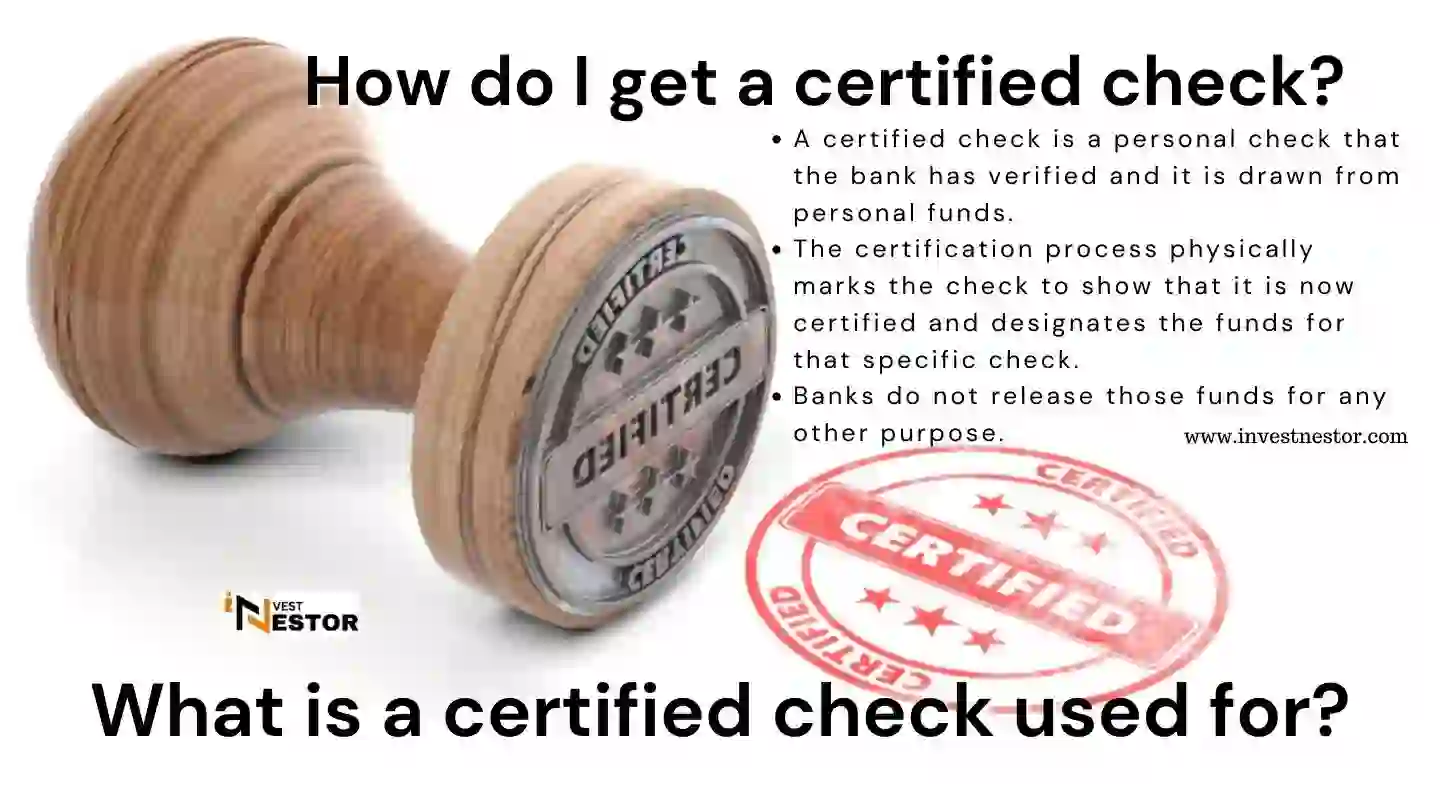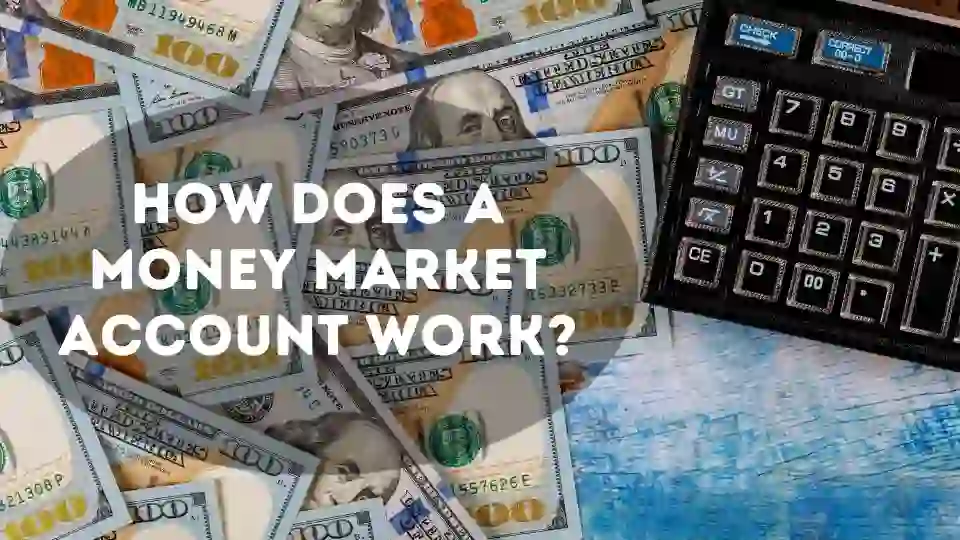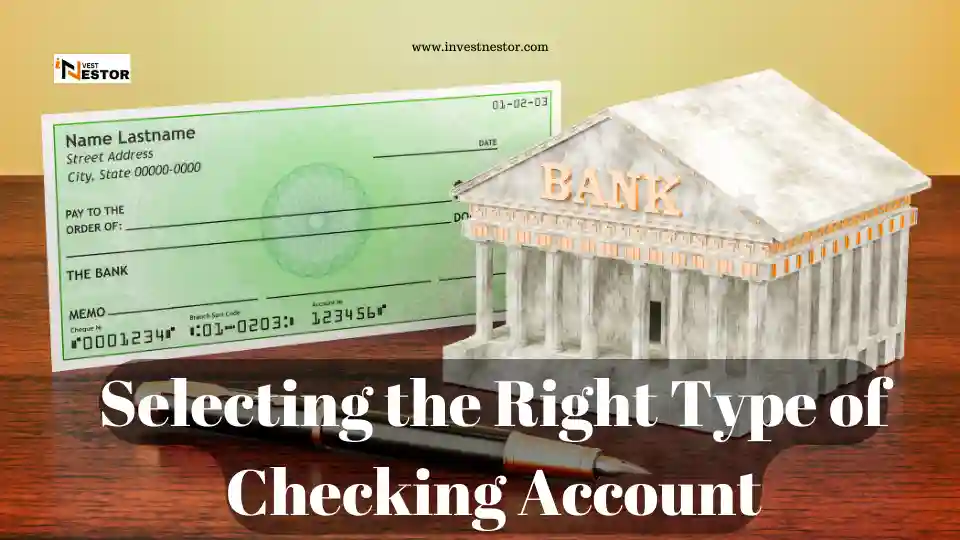
What Is a Certified Check? Certified Check Vs. Cashier's Check
There are ample ways to make a payment, but when it comes to making and receiving secure payment, we often get stuck deciding what's the best. Carrying a lot of money is a huge problem, and personal checks can be an option, but what if the cheque bounces? This is where certified checks play an important role. If you want to know what a certified check is and how to get it, this is where you will find it all.
Key Highlights
‚óŹ A certified check is similar to a personal check that a bank verifies.
‚óŹ A certified check is used for making large financial transactions or when buyers and sellers are unfamiliar and do not trust each other.
‚óŹ A certified check payment can be an expensive mode of payment compared to other options that banks offer.
‚óŹ Certified checks are used to mitigate the risk of non-payment in case the writer of the cheque does not have a sufficient amount in the account.
What Is a Certified Check?
Simply put, a certified check is written by an account holder and guaranteed by the bank. It means you usually write a check, but the bank certifies it and freezes the check amount in your account. By doing so, the check won't bounce whenever it is deposited.
A key benefit of certified checks is that they ensure the funds are available. Whenever someone uses a certified check, the bank confirms that there is enough money in their account to complete the transaction. The bank also verifies the signature is authentic on the check and keeps the specific amount on this certified check for that payment. Also, to indicate that it is a certified check, the bank stands or marks the check, which is also referred to as an official check.
Related Articles: Zelle vs. Wire Transfer: Making the Best Money Transfer Choice
How Does a Certified Check Works?
A certified check gets issued by the bank where the funds are backed in the account holder's checking account, which also provides a guarantee. When the payee gives the certified check, the bank verifies that the funds are available and transfers the amount to the pay. Here, the pay can either be cashed or deposited.
If a person wants to obtain a certified check, he must request and ensure that the funds are available in the account reserved for that specific check. According to the policy, the bank may earmark those funds or immediately deduct them from the account after issuance.
The important thing to know is that the reliability of certified checks depends on the issuing bank. Therefore, issuing a certified check from a trustworthy bank is best to avoid potential issues.
The below steps can help you understand how to get a certified check easily
-
Please verify with your bank whether it offers a certified check.
-
Visit your bank's local branch.
-
Inform the teller about your certified check requirements.
-
Fill in all the conditions a teller wants, and you will receive a certified check.
-
Write a check to a teller and also prove your identity.
-
Verify the check through your teller by stamping or earmarking it as certified.
-
Pay the fee that is associated with a certified check.
-
Keep the receipt until the check is cleared from your account.
What Is the Easiest Way to Get a Certified Check?
A certified check provides numerous benefits to the account holder, and now you might be wondering how to get one. You can quickly obtain one from your bank or credit union. You only need to go to a branch to get one. They will let you know whether they can offer you a certified check and the requirements.
You will need the check amount, the recipient's name, and any note you want to include on the check. You must also prove your identity to your bank or credit union. The bank or credit union will also check whether you have an adequate balance in your account. When you write the check, the teller or bank officer will sign off on it, certify it, and stamp it.
You must note that most institutions charge a fee for certified checks, and the fee amount varies depending on the institution and the transaction amount; however, it is usually between $5 and $15.
How Much Does a Certified Check Cost?
Certified checks are relatively costlier than other payment options. Personal checks typically cost a few cents, but you must pay $15 to $20 for a certified check. Also, not all banks offer certified checks, so it might be challenging to find one. Most banks, even larger traditional banks, prefer cashier check-in money orders over certified checks.
If you want a certified or official check, check with your bank regarding the available payment options.
Suggested Articles: What Happens to Your Bank Account After You Die?
When Is the Best Time to Use a Certified Check?
Certified checks are primarily used for larger transactions where parties are unfamiliar with or do not trust each other. They are also used when it is unsure whether the buyer will make a purchase. In such a situation, certified checks bring peace of mind to both parties when they want funds' safety and security.
Also, certified checks are a convenient option for cash transactions. Once a check is certified, it is considered reliable for immediate use. When a person wants quick access to funds, certified checks eliminate the waiting time often associated with regular checks. A certified check is a secure and practical alternative for sending large amounts of cash.
Certified Check Vs. Cashier's Check: What's the Difference?
When it is between certified checks and cashier checks, they might sound similar, but they do have some crucial differences that one must be aware of.
Banks issue cashier checks, while customers issue certified checks. This means cashier checks are more secure as they cannot bounce, while personal checks can.
Secondly, cashier checks are typically more expensive than certified checks. Cashier checks range from $20 to $30, while the fee associated with certified checks is usually around $15. Lastly, cashier checks can only be used to make payments to businesses or organisations, while certified checks can also be used to make payments to any individual.
It concludes that certified and cashier checks are safe and secure ways of payment. Certified checks are a great way to ensure payment is received, and no fraud is involved.
Bottom Line
We live in a digitised world where payments are made using PayPal or other tools. Writing checks can sound old-fashioned in this digitised world, but when it comes to safety and security, no one can beat certified checks. Certified checks give the recipient and sender peace of mind, as both parties want to ensure the payment happens safely. A bank stamp on the check guarantees that the transaction is successful.
Read Also:


 to Your Advantage.webp)



0 Comments
Add a comment